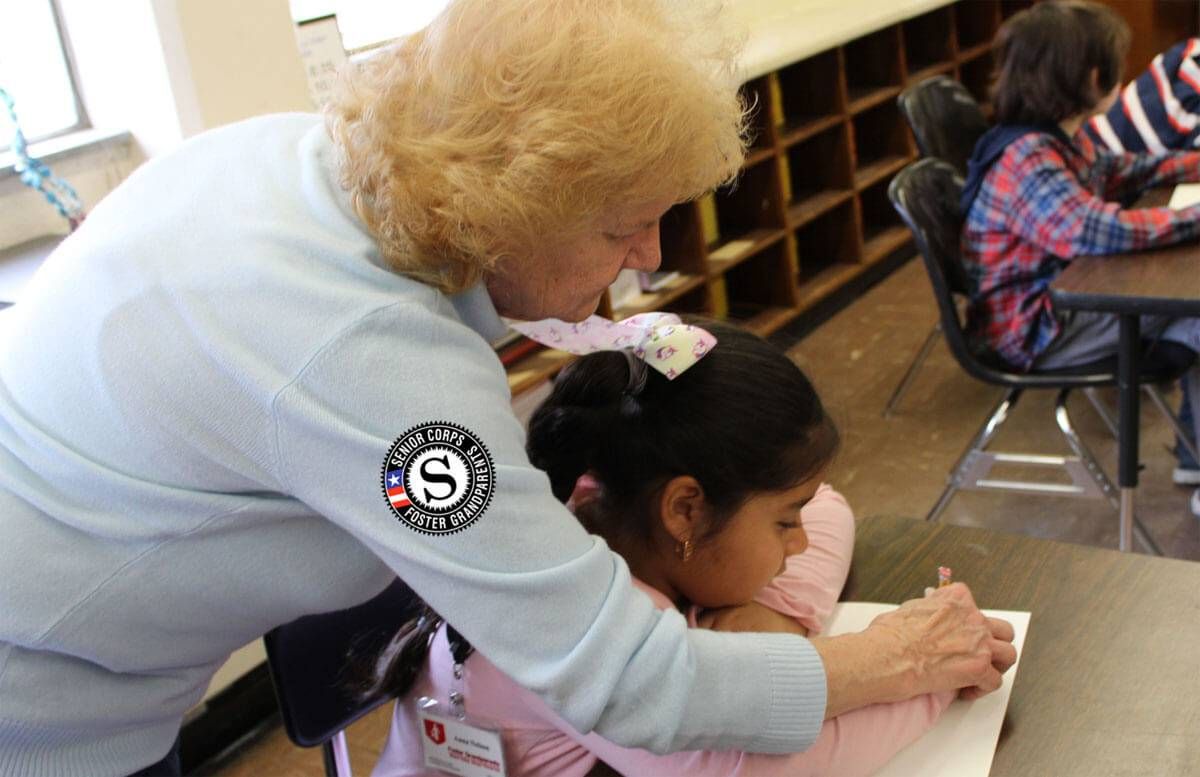The Volunteering That Makes People 55+ Healthier
Benefits from the Foster Grandparent and Senior Companion programs
As Dr. Ann Hwang of the health care advocacy nonprofit Community Catalyst has written on Next Avenue, research studies show that older adults who volunteer are less likely to have high blood pressure or cardiovascular disease. They face a lower risk of cognitive impairment, too. But there’s now evidence that low-income people age 55 and older who volunteer in the federal Foster Grandparent and Senior Companion programs report better health, decreased depression and less social isolation.

“What we’re learning is that these programs have a dramatic impact on the volunteers’ perception of their health and well-being over time. We thought that was the case, and hear it anecdotally all the time. But it was nice to see the research confirm it,” said Erin McGrath, deputy director of Senior Corps, the umbrella organization for the Foster Grandparent and Senior Companion programs run by the federal Corporation for National and Community Service.
How Health Improved for Senior Corps Volunteers
The researchers collected data from more than 1,200 first-time Foster Grandparent and Senior Companion volunteers over two years. Foster Grandparents are tutors and mentors to at-risk kids. Senior Companions help older homebound adults maintain independence through daily-living tasks like driving to the supermarket and alerting doctors and family members to potential problems. Volunteers must be 55 and older with incomes up to 200 percent of the poverty line.
Among the findings from the study of the Foster Grandparent and Senior Companion volunteers:
88 percent who described a lack of companionship before doing this volunteering reported a decrease in feeling of isolation after two years
84 percent reported improved or stable health after two years of volunteering
78 percent of those who reported five or mores symptoms of depression at the beginning of the survey said they felt less depressed two years later
32 percent who reported "good" health at the beginning of the study reported improved health after two years volunteering
One Foster Grandparent's Rebound
Anna Nelson, 70, a Foster Grandparent volunteer with five- and six-year-olds in Knoxville, Tenn., for the past three years, can attest to the study’s results.
“I’m not depressed anymore. My blood pressure has come down. My blood work is now normal. My cholesterol level is down,” said Nelson, one of 500 Senior Corps volunteers in Knoxville. In addition, Nelson said, “I’ve lost weight from being more active with the kids. They get me moving.”
A a former long-haul truck driver, Nelson said her physical and mental health had deteriorated after her husband died. She had both knees replaced and back surgery. “I just got really depressed for ten years. I didn’t do anything,” she noted.
“When I found out about the Foster Grandparent program, I thought it might be something I’d like to do. And I thought it could help with my money problems,” Nelson said. Foster Grandparents and Senior Companions receive a stipend of $2.65 an hour plus training and, sometimes, travel reimbursement.
Initially, Nelson signed up to volunteer 15 hours a week. She liked being a Foster Grandparent so much, she now spends 40 hours a week assisting kids. “It’s given me a sense of being worth something,” Nelson said.
McGrath said the programs’ volunteers like Nelson often report a reduction in depression and loneliness because they “feel a sense of connectedness” and a “renewed sense of purpose.” These programs are managed locally by staffers at area nonprofits and government agencies. “The local manager makes sure the volunteers are being successful and have the proper training,” said McGrath.
The government’s small stipend also helps give the volunteers the ability to be Foster Grandparents and Senior Companions. Low-income volunteer are “typically underrepresented” among volunteers in America, McGrath said.
Helping Caregivers With Their Lives, Too
One more bonus from Senior Companion volunteering: These volunteers providing respite services make life easier and better for caregivers of the people they’re helping, researchers found.
A Senior Companion Program study of 56 of these caregivers revealed that 76 percent of caregivers with “critical” personal and family needs said Senior Companion respite services helped them “a lot” with personal time and household management.
And 60 percent of the caregivers said the Senior Companions let them be more involved in social activities and enjoy time with their friends and family. Forty percent of caregivers surveyed who rated their own health as "fair" or "poor" before the Senior Companions arrived described their health as "good" two years later.
“Those were impressive numbers for what the respite care allows the caregivers to do for themselves,” noted McGrath.
The future for these two programs is cloudy, however. The Trump administration has proposed zero funding for them in three annual federal budgets, including the one released yesterday. But Congress recently committed a $6 million increase for Senior Corps.
The Impact on Volunteers and Their Communities
Deisha Finley, Senior Corps manager at the Knoxville-Knox County Community Action Committee’s Office on Aging — a public, nonprofit government agency — believes the programs’ volunteers benefit not only needy kids and adults, but their cities and towns as well. Her volunteers range in age from 55 to 95.
“We see the impact of their volunteer service in the community and we see a significant impact in the lives of the volunteers as well,” said Finley. “A lot of times, the volunteers may not have a lot of support or the best health. Then they become active with the programs and earn a small stipend. Pretty soon, they’re able to afford their medications and buy fresh fruit and vegetables. Just ask any Senior Corps director.”
Or ask Nelson. “I would say being a Foster Grandparent makes you a lot happier with your energy level. It just makes you happier,” she said.


